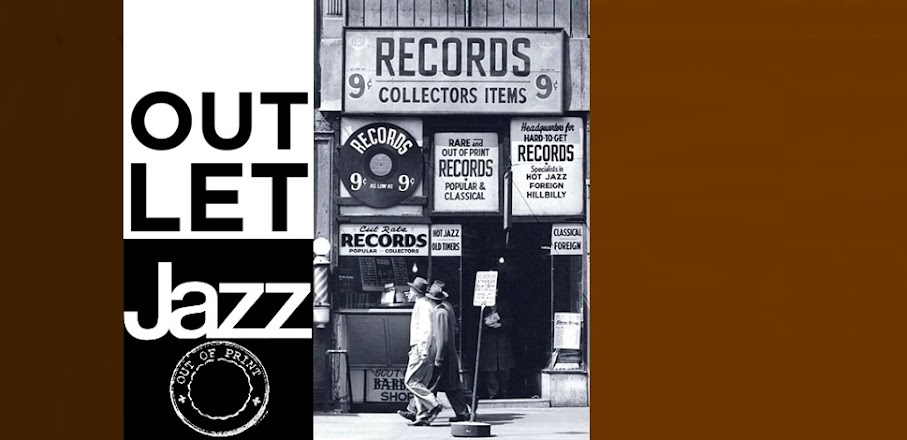Although Coleman Hawkins always denied it, he was undoubtedly one of the first and greatest of all jazz saxophonists. Hawkins, born in St. Joseph, Missouri on 21st November, 1904, was quick to point out that he was not the earliest saxophone stylist in jazz but he was nevertheless the first to establish a style on the instrument. His career, from Mamie Smith’s Jazz Hounds via the Fletcher Henderson band, the years in Europe and the countless club and concert appearances, is too well-known to warrant reiteration. Suffice it to say that when he died in New York City on 19th May, 1969, the jazz world mourned the loss of a true giant.
The enclosed record presents the dozen titles he made for Capitol at the beginning of 1945 when he was leading a very successful small band. Hawk had not been to Hollywood since the early nineteen-twenties when he visited the west coast with Mamie Smith. Some doubt surrounded his 1945 visit and although he was tentatively booked to appear in the Philharmonic Auditorium, Los Angeles on January 17th it was subsequently discovered that he was still in New York on that date. Eventually he turned up in California and proceeded to thrill west coast jazz audiences with the power of his playing. In every respect the music heard on the enclosed LP is classic Hawkins and classic jazz. *Alun Morgan (liner notes)*
When tenor saxophonist John Coltrane recorded his composition "Giant Steps" in 1959, he created something that changed the way musicians thought about improvisation and harmony. Decades earlier, the man who took the first leaps and bounds with the tenor sax in jazz was Coleman Hawkins.
Before Hawkins arrived on the jazz scene with the Fletcher Henderson Orchestra in the 1920s, the tenor sax was basically an ensemble instrument — as opposed to a improvisational instrument — mainly providing a link between the clarinets and brass instruments in military bands and big bands. Hawkins had different ideas, and through his virtuosic playing, he put the instrument front and center in the development of jazz. Hawkins' approach to music would later serve as a bridge from the era of big band swing to later developments like bebop. Put simply, Hawkins was a musical pioneer, one of the most versatile and accomplished soloists in jazz history. Hollywood Stampede shows twelve samples of his genius.
When bebop arrived on the scene, many of the musicians of the swing era dismissed it in much the same way that bebop musicians would later dismiss rock 'n' roll. Hawkins, however, was very interested in this new development and often used a mix of bop pioneers in his ensembles. For example, on this 1945 recording of Hawkins' "Rifftide," we hear Sir Charles Thompson (piano) and Allan Reuss (guitar), who both had roots in earlier eras, while the other members of the band — Howard McGhee (trumpet), Oscar Pettiford (bass) and Denzil Best (drums) — were early practitioners of bebop. Hawkins could swing with the best of the boppers. *npr.org*
Side 1
1 - April In Paris
(V. Duke, E. Y. Harburg)
2 - Rifftide
(Coleman Hawkins)
3 - Stardust
(H. Carmichael, M. Parish)
4 - Stuffy
(Coleman Hawkins)
5 - Hollywood Stampede
(Coleman Hawkins)
6 - I'm Through With Love
(M. Malneck, F. Livingston, G. Kahn)
Side 2
7 - What Is There To Say?
(V. Duke, E. Y. Harburg)
8 - Wrap Your Troubles In Dreams
(H. Barris, B. Moll, T. Koehler)
9 - Too Much Of A Good Thing
(C. Hawkins, C. Thompson)
10 - Bean Soup
(Coleman Hawkins)
11 - Someone To Watch Over Me
(G. and I. Gershwin)
12 - It's The Talk Of The Town
(J. Livingston, M. Symes, A. J. Neiburg)
Coleman Hawkins (tenor sax); Howard McGhee (trumpet); Vic Dickenson (trombone [#5, #8]); Sir Charles Thompson (piano); Allan Reuss (guitar); Oscar Pettiford [#1 to #8], John Simmons [#9 to #12] (basses); Denzil Best (drums).
Recorded in Hollywood, Ferbruary 23 (#1 to #4), March 2 (#5 to #8), March 9 (#9 to #12), 1945.


https://www.mediafire.com/file/4ux4bm6pu0juufb/CH_hllywdstmpd.rar/file
ReplyDeleteInteresting, thx a lot !
ReplyDeletethank u i love this record have it on vinyl
ReplyDeleteall of coleman's bop is great
Muchas gracia.
ReplyDeleteThis was a wonderful series. Many thanks blbs!
ReplyDelete